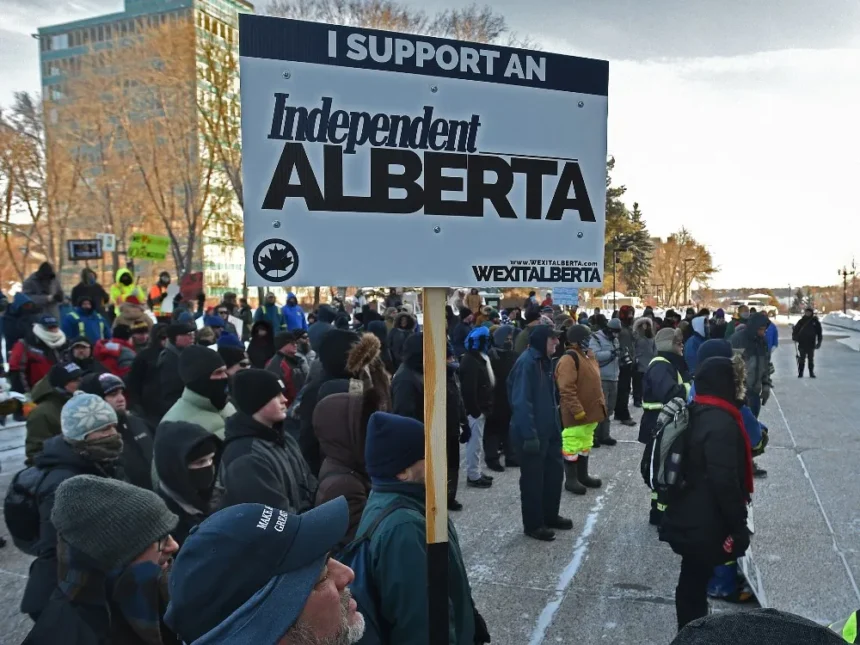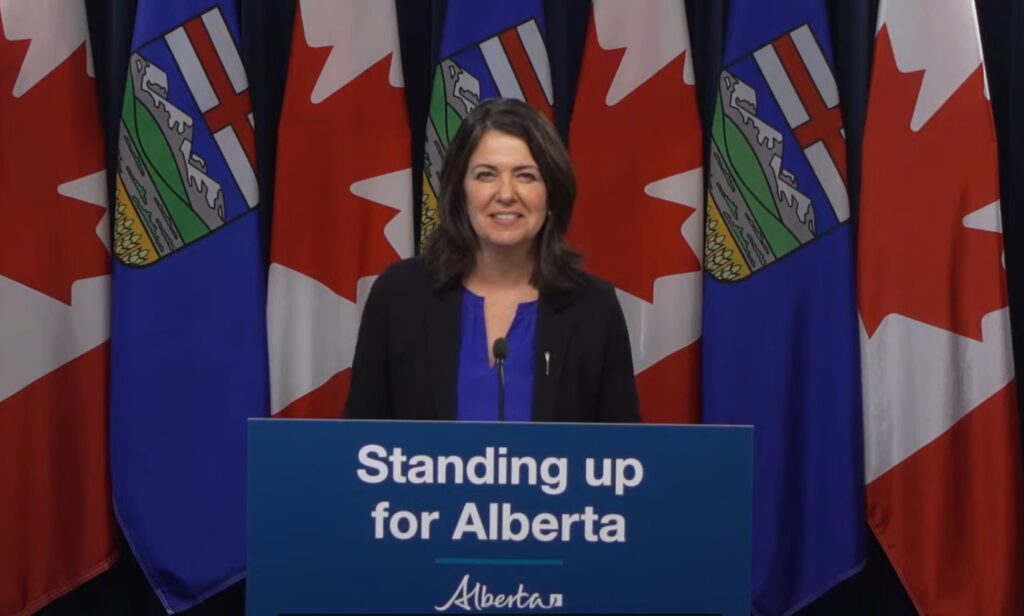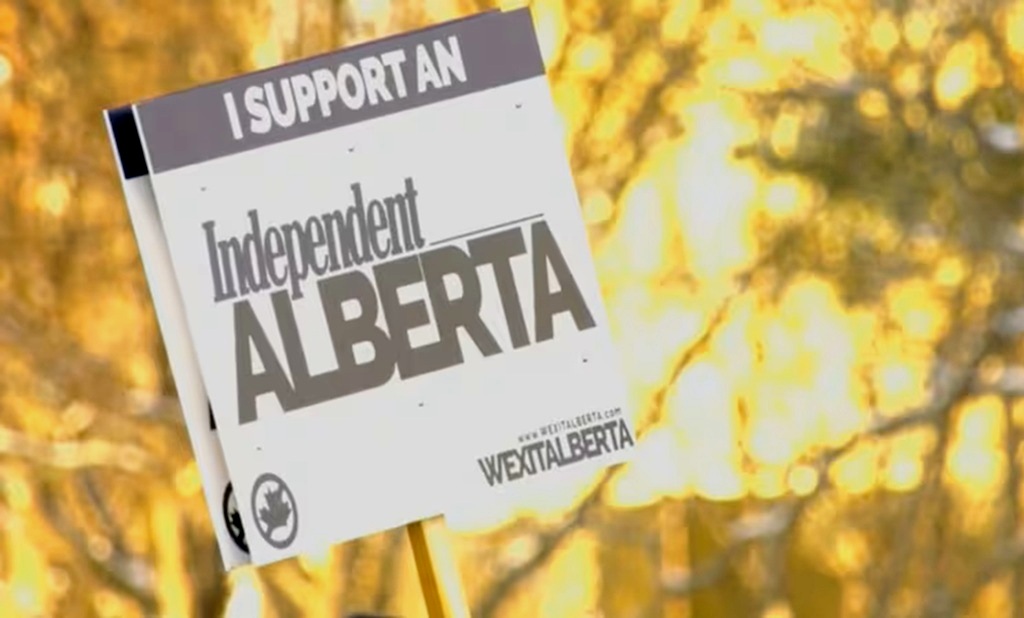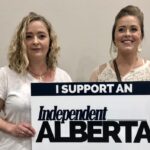EDMONTON — The Liberal Party’s win in the 2025 federal election, led by Prime Minister Mark Carney, has reignited the independence debate in Alberta. After a fourth straight Liberal victory, frustration has spread across the province, leading to a renewed push for separation.
The Alberta government has introduced new legislation that could open the door to a referendum on independence. While most experts say Alberta leaving Canada is unlikely, the tone among politicians and grassroots groups points to a province facing a major decision.
Alberta’s 2025 election results showed strong support for the Conservatives, who won 34 of the province’s 37 seats. Even with this near-sweep, the Liberals’ national victory left many Albertans feeling ignored.
The NDP held just one seat, and the Liberals picked up two—hardly enough to change the sense of being sidelined. “We voted for change, but we’re stuck with more of the same Liberal policies hurting our economy,” said Luke Bungay, an oil and gas worker in Calgary, voicing a common view.
The Liberals win, with a minority government, according to CBC News, which was tough for a province that feels left out of federal decisions. Premier Danielle Smith, a strong critic of Ottawa’s energy and climate agenda, responded right away.
On April 29, she congratulated Carney but accused the Liberals of damaging Alberta’s economy. “Many Albertans are frustrated that a government openly hostile to our province’s economy is back in power,” Smith said, sounding a warning.
New Law Sparks Talk of Referendum
The day after the election, Alberta’s United Conservative Party (UCP) government put forward Bill 54, a law aimed at making it easier to start referendums—including one on leaving Canada. Smith said the bill was in the works no matter who won, but the timing made it clear what was at stake.
“It’s Albertans—not my government—who should decide if separation goes on a ballot,” Smith told reporters, nodding to the rising interest in independence.
Bill 54, likely to pass with the UCP’s majority, would overhaul Alberta’s election rules. It would make it easier for citizens to start referendums and allow corporate and union donations again.
Critics, including the NDP, warn the bill could let wealthy groups shape Alberta’s democracy. But separatist groups support the move, saying it gives people a voice. “This is about giving power to Albertans,” said Cameron Davies, leader of the Republican Party of Alberta, which wants a binding independence vote.
Polls before the election showed Alberta’s anger. An Angus Reid survey on April 6, 2025, found that 30% of Albertans would back separation if the Liberals won, and one in four would vote for an independent Alberta.
While this is lower than the separatist peak in 2019, it’s still high, matching levels in Quebec and Saskatchewan. “Support for separation is down since 2019, but it’s not going away,” the Angus Reid report said, showing the province’s ongoing sense of being left out.
The mood was clear on election night at Bottlescrew Bill’s Pub in Calgary as the Liberals took key seats. “As an Albertan, I’m disappointed we didn’t matter,” said Sarah Thompson, who owns a small business.
“If Ottawa keeps ignoring us, why stay?” Social media has spread these views, with some users saying a Carney win could “push Alberta into independence” or even bring calls to join the United States. These ideas are still on the margins but show a growing number of people questioning Alberta’s place in Canada.
Not everyone wants to leave Confederation. Jared Wesley, a political scientist at the University of Alberta, estimates the core group of separatists is much smaller, probably less than 10%. “The frustration is widespread, but real separation is unlikely,” Wesley told CTV News.
He also pointed out that Alberta is treaty land, which makes separation even harder. “These are treaty lands,” an Indigenous leader told Ricochet, stressing that treaties protect both the land and its people, not just the province’s government.
Smith Walks a Tightrope in Alberta
Premier Smith has played up separatist talk without backing an actual vote to leave. In March 2025, she warned that a Liberal win could cause a “national unity crisis” unless Carney rolled back the carbon tax and eased up on oil and gas rules.
After the election, she repeated her call for “Alberta sovereignty within a united Canada,” and asked Carney to work with the province on energy. “We want Team Canada to stand up for Alberta for once,” she said.
Opponents say Smith’s words stir up anger but don’t solve anything. Rachel Parker, an independent journalist who covers the separatist movement, called Smith’s new panel on federal-provincial relations a way to avoid real action.
“Panels are just a way for governments to stall,” Parker told the National Post. Others, like former Liberal MP Martha Hall Findlay, now working in Alberta’s oil patch, see it as political theatre. “Alberta won’t separate,” she said, adding that the province relies on Canada’s economy.
Alberta’s push for separation isn’t new. The National Energy Program of the 1980s, started by Pierre Trudeau, still bothers many in the province, who saw it as a direct attack on local oil jobs.
More recently, climate policies like the carbon tax and emissions caps are seen as unfairly hitting Alberta’s main industry. “The oilpatch gave me a good living,” one voter wrote in a CBC story. “I want leaders who see its value for Canada.”
The 2025 election made these feelings worse. Conservative leader Pierre Poilievre, who lost his seat but still has Smith’s support, made energy a top issue. In contrast, many Albertans say the Liberals and NDP treated the province poorly, deepening the divide.
What Happens Next in Alberta
As Bill 54 moves forward, Alberta faces important choices. If passed, the law could take effect within months, possibly leading to a referendum in 2026. Separatist groups like the RPA are gearing up, with Davies saying they have plenty of resources to run candidates in the next election.
Posts on X suggest a “perfect storm” of election results and outside challenges, like U.S. President Donald Trump’s trade threats, could push Alberta closer to independence.
For now, Alberta leaving Canada still looks unlikely, but talk about it is louder than ever. “Albertans are rethinking their role in Canada,” wrote Lorne Gunter for Rebel News, noting that 30% support for separation sends a strong message even without a major movement.
As Smith deals with her province’s frustration, the next steps will be key—either opening new talks with Ottawa or risking a deeper push for separation that could change the country’s future.
Sources: CTV News, CBC News, National Post, Ricochet











